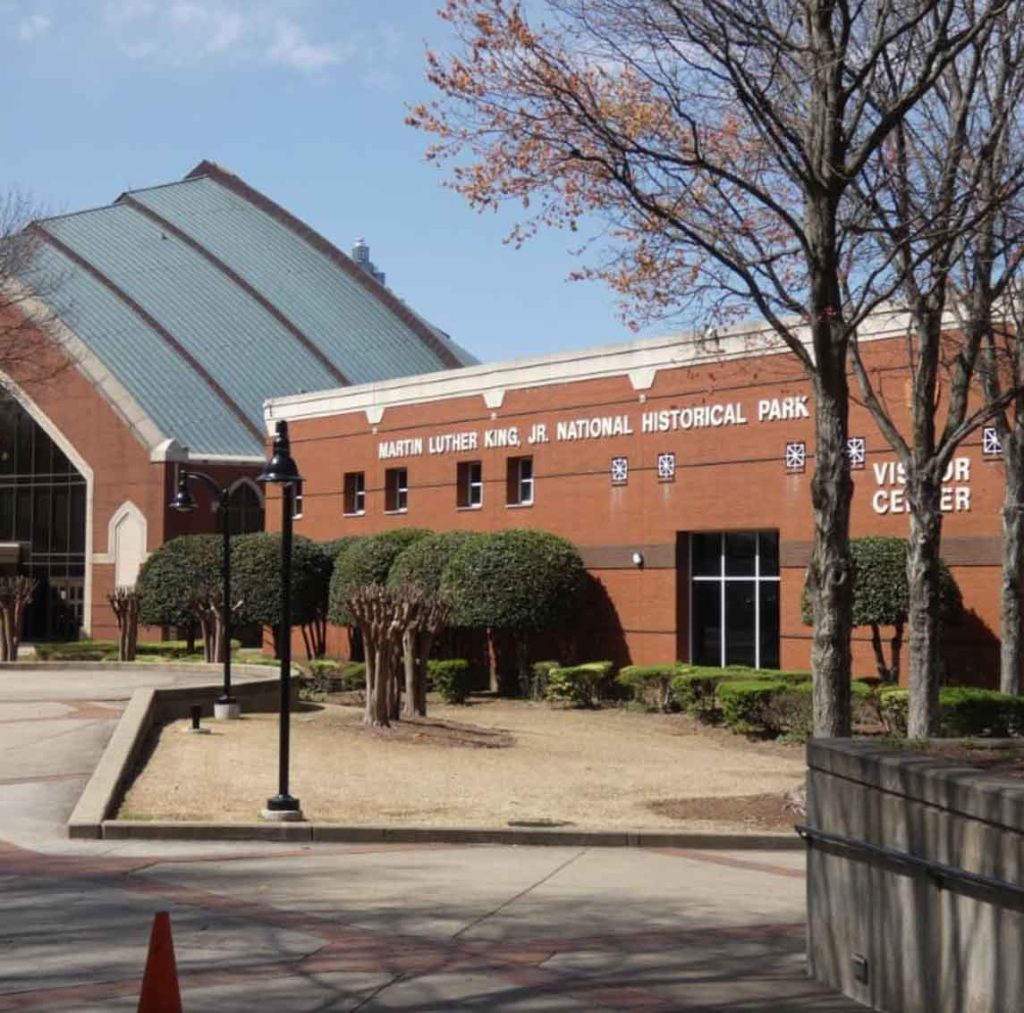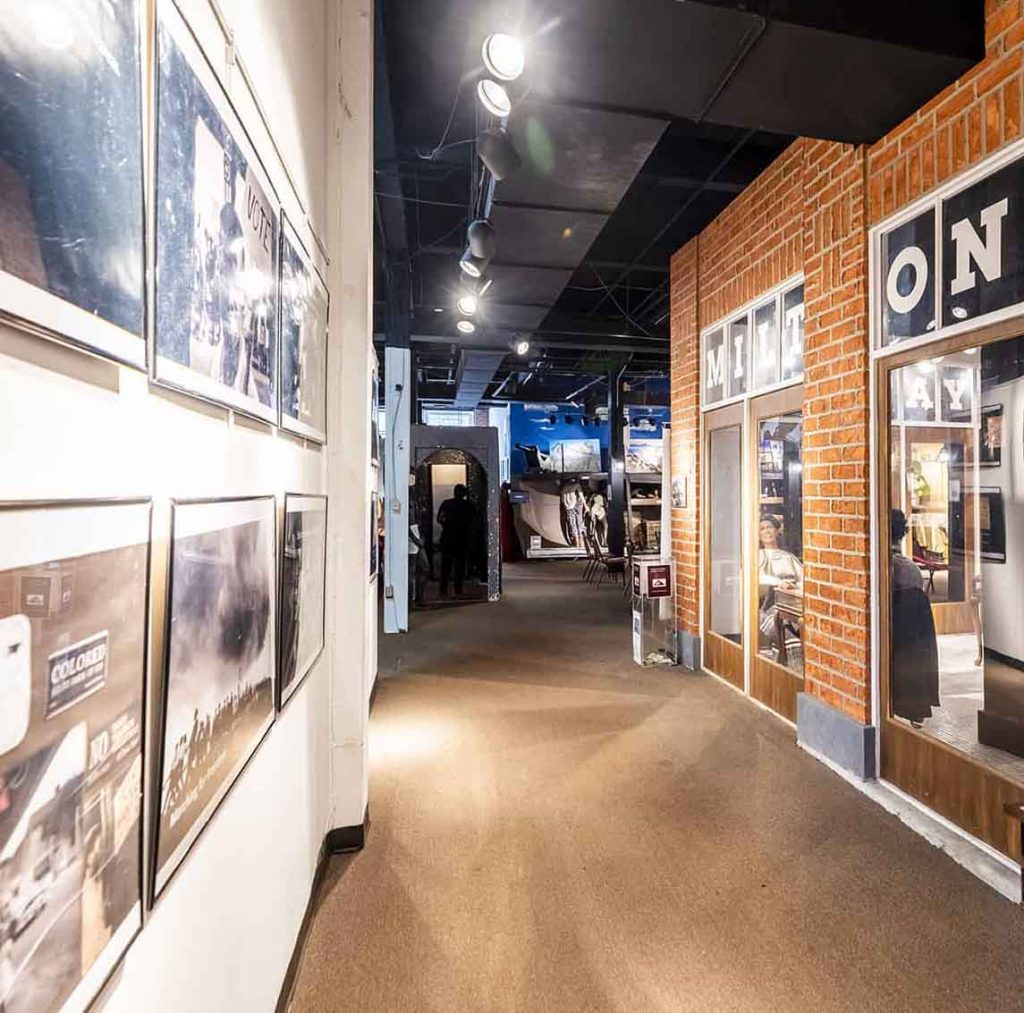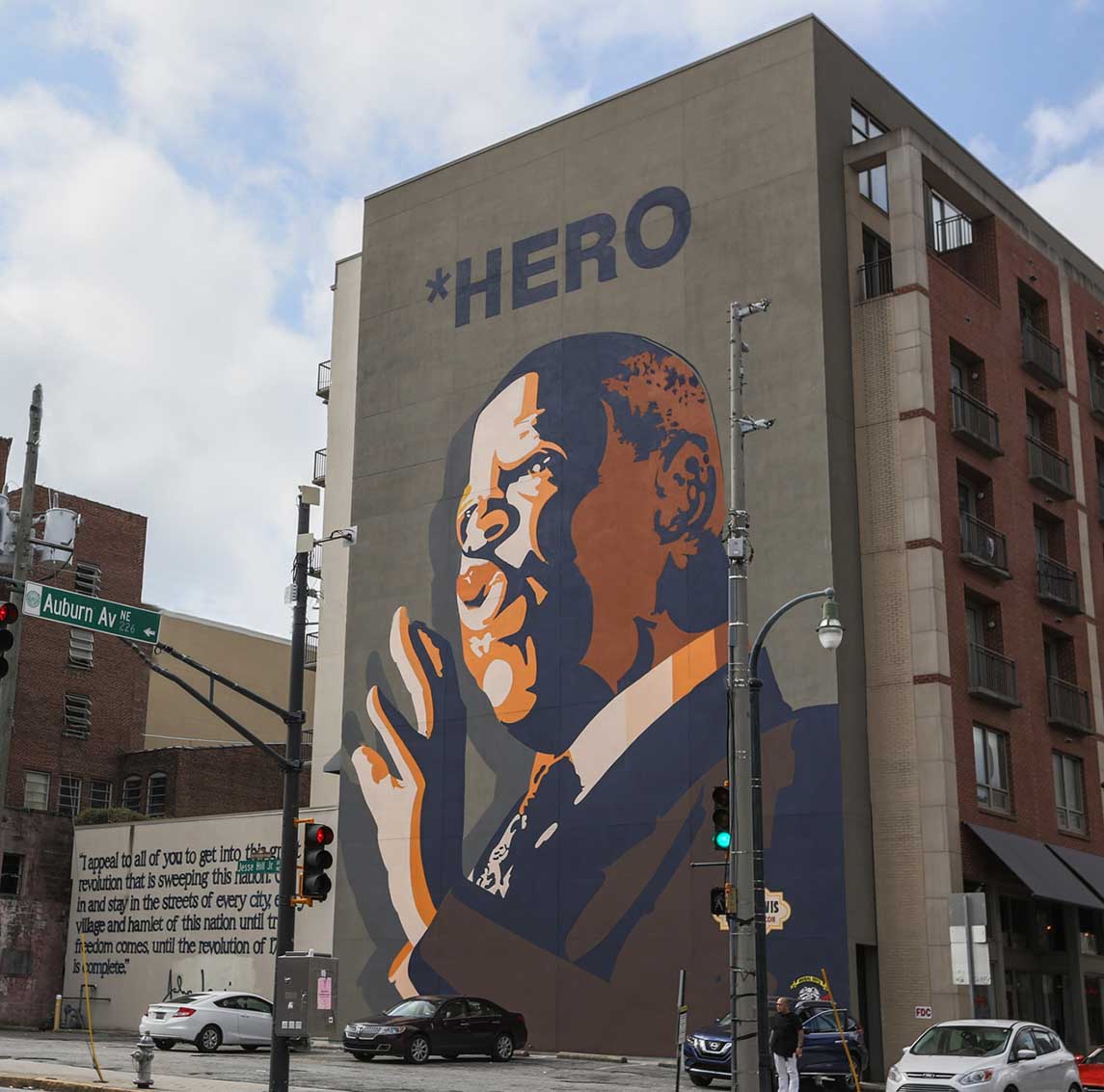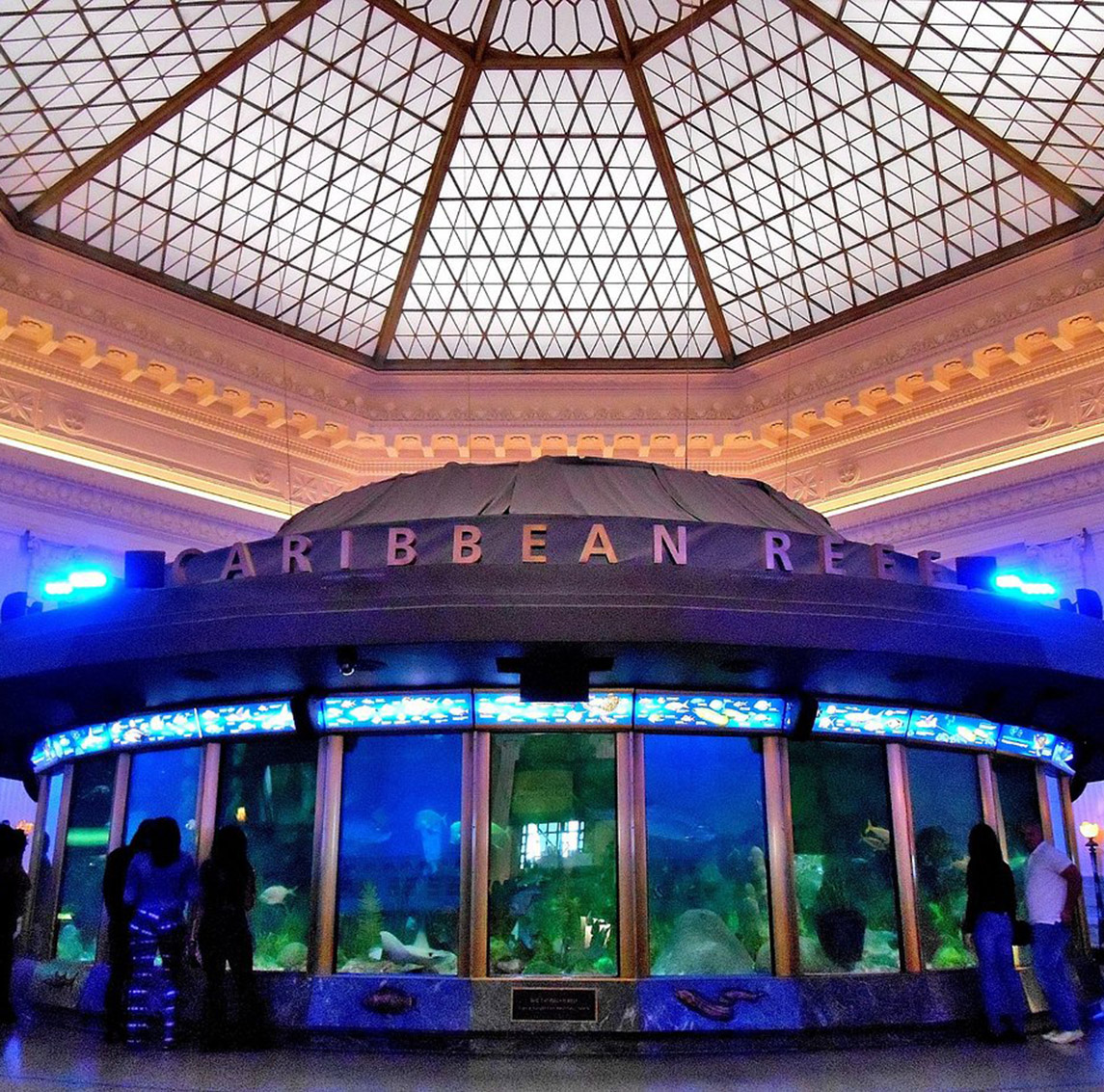Every city has a street that runs through the city’s history and soul like a blood vessel. Sweet Auburn Avenue is such a street in Atlanta, Georgia, USA. It was not only one of the most prosperous economic and cultural areas for black Americans, but also an important birthplace of the civil rights movement. Martin Luther King was born here, witnessed decades of struggle, and kept the weight of memory.
Chapter 1: The past and present of Sweet Auburn
1.1 The birth of Black Wall Street
The name of Sweet Auburn comes from the poem written by Oliver Goldsmith, an 18th-century poet: “Sweet Auburn! Loveliest village of the plain.” However, in reality, it does not carry the idyllic tranquility, but the bloody history of the struggle of the black nation.
From the late 19th century to the early 20th century, Atlanta’s racial segregation policy became increasingly strict. In the environment where white communities were blocked, blacks were forced to establish economic networks, cultural centers and religious communities in their own areas. Sweet Auburn developed rapidly in this context.
In the 1920s, it was called “Black Wall Street”. Banks, insurance companies, shops, restaurants, and cinemas were everywhere. Black entrepreneurs created their own economic miracle here, laying an important foundation for the subsequent civil rights movement.
1.2 Cradle of the Civil Rights Movement
Sweet Auburn’s most well-known historical moment came from the birth of a legendary figure-Martin Luther King. He was born in a wooden house on this street in 1929, which has now been completely preserved and has become the core part of the Martin Luther King National Historic Site.
During the climax of the American civil rights movement from the 1950s to the 1960s, Sweet Auburn was an important position for strategy formulation, protest organization, and concept dissemination. A large number of pastors, students, and volunteers gathered here to jointly write an important chapter in American social change.
Chapter 2: In-depth analysis of must-visit landmarks
2.1 Martin Luther King Jr. National Historical Park
This is a whole protected neighborhood, including his birthplace, church, cemetery, memorial center and several historical buildings.
Address: 450 Auburn Ave NE, Atlanta, GA
Opening hours: Open all year round, 9:00 AM – 5:00 PM, except Thanksgiving and Christmas.
Suggested playing time: more than 2.5 hours
Core highlights:
Birthplace: A two-story wooden building that retains the original layout and furniture. There are scheduled guided tours every day, and you need to queue up at the visitor center in advance to get a free ticket.
Ebenezer Baptist Church: Martin Luther King and his father both served as pastors here, and it is the source of faith in the spirit of the civil rights movement.
King Center: Displays Martin Luther King’s speech manuscripts, Nobel Peace Prize, relics, etc. The torch pool and his mausoleum in the center are check-in spots for tourists.
Freedom Walk: A wall of images showing black history and the civil rights movement, a space for contemplation and commemoration.
Recommended third-party booking platforms:
GetYourGuide: Provides guided tours of historical sites, with English or German explanations, and prices range from about $30 to $50.
Viator: Provides a half-day tour package for the “Civil Rights Trail”, including transportation and explanations.
Klook: A permanent Chinese service for black civil rights-themed walking tours, suitable for international travelers.

2.2 Atlanta Black History Museum (Apex Museum)
This is one of the few independently operated museums in Sweet Auburn, telling the “history from the perspective of black people.” Compared to the official context, the stories here are more real and shocking.
Address: 135 Auburn Ave NE, Atlanta, GA
Opening hours: Tuesday to Saturday, 10:00 AM – 5:00 PM
Suggested visit time: 1-1.5 hours
Core exhibits:
African Origin Hall: Tracing the history of the African slave trade
Black Entrepreneurs Hall: Showcasing the commercial glory of Sweet Auburn
Oral History Wall: Civil rights memories told by local residents
Recommended booking platforms:
Klook and Tiqets: Provide e-tickets and guided tour reservation services, suitable for independent travelers.
Airbnb Experience: Locals can be booked to lead group activities combined with community visits, with flexible formats.
Chapter 3: Walk into the street corners – where history is still alive
History seems to whisper in every street corner of Sweet Auburn. This is not only a once-glorious commercial avenue, but also a museum-style block that tells the story of the persistence, resistance and dreams of the black community. If Martin Luther King Jr.’s childhood home is a private memory, then the next place is a witness to the collective memory of the entire community.
3.1 Big Bethel AME Church
Big Bethel African Methodist Episcopal Church, built in the 1870s, is one of the oldest black churches in Georgia. From the early 20th century to the height of the civil rights movement, this church was not only a place for religious ceremonies, but also an important platform for black education, culture, politics and struggle.
The famous “Black History Theater” (Heaven Bound) has been performed here since the 1930s, attracting thousands of audiences every year, and this tradition continues today. Open worship is held every Sunday, and visitors can participate freely to experience the cohesion and spiritual appeal of black church culture.
3.2 Royal Peacock Club
In the mid-20th century, when Atlanta was still mired in racial segregation, the Royal Peacock Club became a free paradise for black music artists. Standing in front of the inconspicuous house number on Auburn Avenue, it is hard to imagine that this place has welcomed world-class superstars – James Brown, Aretha Franklin, Marvin Gaye, etc. have all performed passionately here.
Royal Peacock is not only a landmark of nightlife, but also witnessed an era when a group sought strength in music. Although Royal Peacock no longer holds large-scale performances today, it has opened a small exhibition hall, using black and white images and audio to reproduce the golden years of the night of debauchery, hope and shouting.
Chapter 4: Street Food and Cultural Experience
4.1 The King’s Cafe
This cafe is named after Martin Luther King and specializes in Southern soul food, such as fried chicken, honey ham, sweet potato pie, etc., which tastes simple but full of hometown flavor.
It is not only a place to eat, but also a place for community issue discussions, literary recitations and lectures.

4.2 Local Green Atlanta – Auburn Avenue Branch
A new restaurant brand dedicated to healthy black diet. It focuses on plant-based, low-oil and low-salt lifestyle. It is suitable for modern travelers to try new southern light food.
Chapter 5: Recommended itinerary and travel tips
If you only have a short day in Atlanta, you can still experience the cultural heritage of Sweet Auburn in depth through orderly arrangements.
5.1 One-day in-depth cultural tour suggestions
Morning:
Start from the city center and go to Martin Luther King National Historic Site to visit his birthplace, Ebenezer Baptist Church and Freedom Walk.
Then walk to the memorial pool at King Center and quietly gaze at the tombstones of Dr. King and his wife, starting this cultural journey in solemnity.
Noon:
Go to The King’s Cafe for dinner, try fried chicken and sweet potato pie, and listen to the owner talk about the history of the community (if arranged).
Afternoon:
Walk along Auburn Avenue to APEX Museum to browse the exhibition of black business history and urban development.
Then transfer to Big Bethel AME Church to attend the afternoon open service or a free visit.
Evening:
Visit the Royal Peacock Club site, participate in the Airbnb Experience street jazz performance, or join a cultural walking tour led by a local guide.
Night:
Return to the city center. It is recommended to stay in the City Hall or Downtown area hotels, such as The Candler Hotel or Hyatt Regency Atlanta, to facilitate the next day to other attractions.
5.2 Transportation and travel suggestions
Subway: You can take the MARTA subway blue line, get off at King Memorial Station, and walk about 10 minutes to the core area of Sweet Auburn.
Bus: Choose the Auburn Avenue direct line bus (such as Route 3 or 816), which connects the major stations in the city center with the Civil Rights Memorial Area. The stations are clear and there are more buses.
Self-driving and ride-sharing: If you drive here, it is recommended to park your car in the public parking lot next to King Center. Most attractions in the area are within a 10-minute walk, and walking is the most efficient way to explore. Uber and Lyft are also convenient to use in Atlanta, especially suitable for night trips or family trips.
In addition, third-party platforms such as Viator, Klook and GetYourGuide all offer Sweet Auburn cultural half-day or full-day tour packages, including guided tours, tickets and some meals, which are suitable for travelers who want to save time and gain a deeper understanding of history.
Sweet Auburn is not just an old street, but also a mirror. It reflects the true outline of the racial struggle and social transformation in the United States over the past century, and also inspires people around the world to continue to speak out when facing injustice.
We are not only visiting history, but also witnessing the continuation and self-repair of a culture. From Martin Luther King’s home to the Wall of Freedom, from the night of jazz music to the church with deep faith, every step is an echo of history.
If you plan to go to the southeastern United States, don’t miss Sweet Auburn. It is not only worth your time, but also worth remembering for a lifetime.





